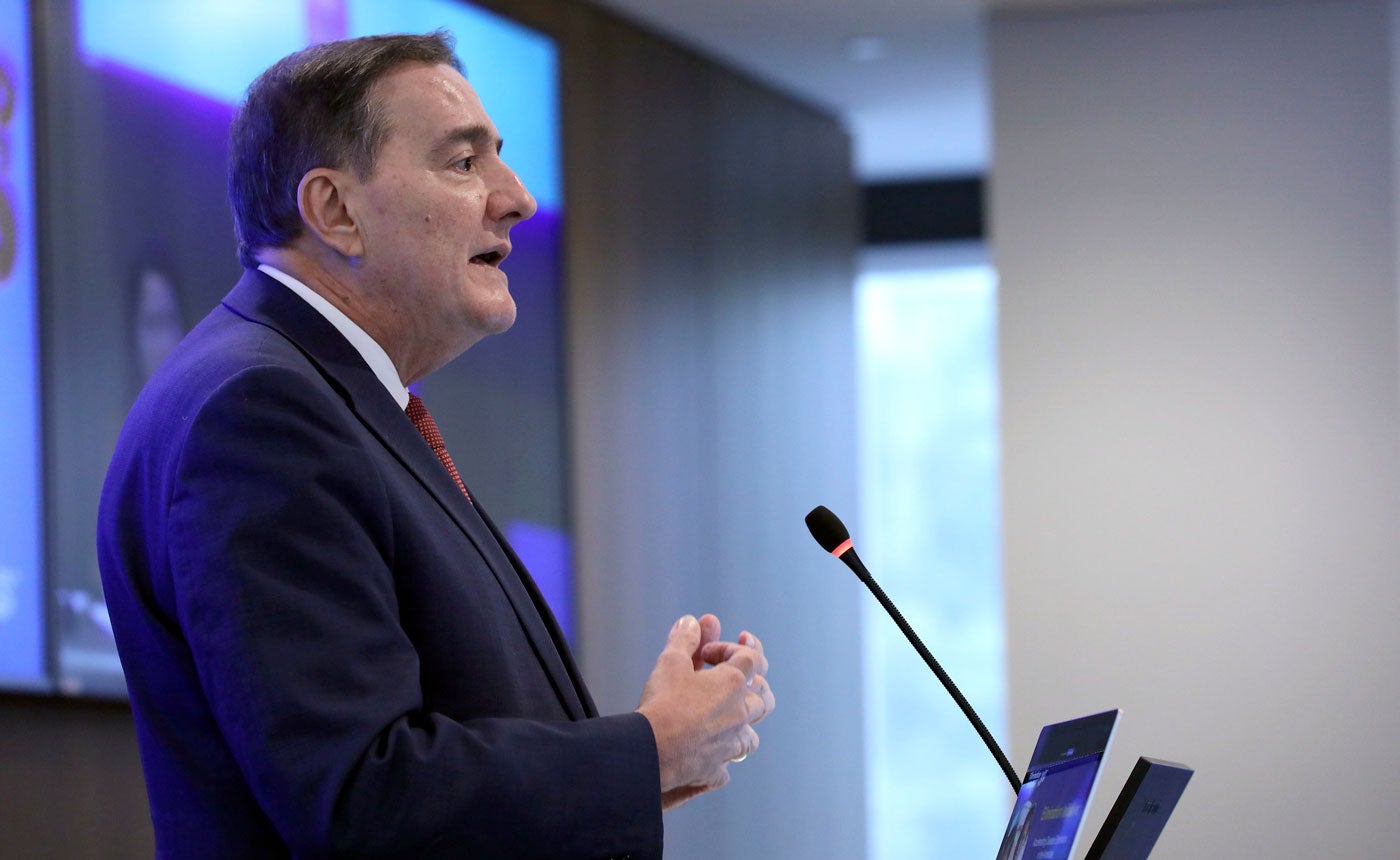
Washington D.C., 30 September 2024 (PAHO) – The Director of the Pan American Health Organization (PAHO), Dr. Jarbas Barbosa, has called on countries and partner organizations to ensure equitable access to innovative solutions and advanced technologies to accelerate progress towards disease elimination in the Americas.
Speaking today at a briefing session of the Organization’s 61st Directing Council, the PAHO Director underscored that it is imperative to “take advantage of available innovations and technologies to alleviate the suffering of those affected” by communicable diseases. These include the use of AI to interpret x-rays in clinics without access to specialist physicians, pre-exposure prophylaxis (PrEP) to stop HIV transmission, access to affordable treatment for hepatitis C, and innovative surveillance tools, among many others.
During the event “Implementing innovations and best practices for communicable disease elimination in the Americas,” participants shared their experiences of implementing innovative solutions and technologies to accelerate the elimination of diseases such as hepatitis C, HIV, tuberculosis (TB), and lymphatic filariasis.
Participants included several high-level officials. During their interventions, Dr. Althese de la Torre Rosas, Ministry of Health of Mexico, discussed her country’s experience in advancing towards the elimination of hepatitis C. Dr. Jaime Urrego, Vice Minister of Public Health of Colombia highlighted the importance of expanding access to PrEP in accelerating HIV elimination. Dr. Eric Pena, Vice Minister of Public Health of Peru discussed the role of portable x-ray and AI-led diagnosis in enabling better access to TB diagnosis and treatment in rural and hard-to-reach areas, and Dr. Frank Anthony, Minister of Health of Guyana, shared his country’s experience of leveraging geostatistical methods for reaching the last mile of lymphatic filariasis elimination.
A panel was also held with experts from Global Fund, UNITAID, USAID, and the government of Canada, during which participants highlighted the importance of an equity approach, and of countries, civil society and organizations working together to leverage innovation and scale-up funding to ensure equitable access to cutting edge tools and health products.
Progress towards elimination
Since the launch of the PAHO Elimination Initiative in 2019, which aims to eliminate over 30 communicable diseases and related conditions by 2030, “countries have made great strides, even in the face of the COVID-19 pandemic,” Dr. Barbosa said.
In the Americas, 19 countries have already eliminated malaria and 11 have eliminated mother-to-child transmission of HIV and syphilis. PAHO and the World Health Organization (WHO) also announced today that Brazil has achieved elimination of lymphatic filariasis (LF). This achievement reflects over a decade of collaboration between national and local health care authorities, health workers, communities, and PAHO, including on the implementation of mass drug administration campaigns, surveillance efforts, morbidity management and vector control activities.
The Elimination Initiative is “an opportunity to accelerate the implementation of actions that take advantage of available innovations and technologies to alleviate the suffering of those affected,” Dr. Barbosa said. It is also an opportunity to lead a change in the way we address communicable diseases – an integrated response that puts people and populations at the center of policies.”
“I am convinced that the innovative solutions presented today will inspire countries and partners to adopt, scale and sustain them, moving steadily towards disease elimination.”
Health in the Americas
PAHO’s flagship report – Health in the Americas, Accelerating Disease Elimination, was also launched today to document progress towards the Elimination Initiative and highlight some of the challenges and opportunities ahead.
The report shows that despite successes in eliminating various vaccine-preventable diseases, the Americas continues to face a complex landscape of communicable disease challenges, including climate change, vaccine hesitancy, healthcare inequalities, and novel infectious diseases. The report emphasizes the Initiative’s call to action that promotes collaborative innovation to transform health outcomes by implementing strategies that address endemic diseases and are based on the unique health challenges that countries face.
It concludes that The Elimination Initiative has underscored the need for a multifaceted approach to disease elimination, focusing on community engagement, social determinants of health, and tailored interventions. By addressing multiple diseases through a systems-based approach, these efforts promote equity and sustainability in health services. Lessons learned will enable PAHO and Member States to build resilient health systems that can respond to future challenges.
Participant quotes
Dr. Althese de la Torre Rosas, Ministry of Health of Mexico
When it comes to the elimination of hepatitis C, “we had to change our perspective, from one of purely public health, to one of elimination.”
“Integrating institutions and actions has also been key, as has establishing clear objectives and populations, and ensuring standardized information that follows people throughout the treatment cycle.”
Dr. Eric Pena, Vice Minister of Public Health of Peru
“Although many countries remain concerned about the economic impact of the COVID-19 pandemic, it is crucial that we invest in innovative technology that enables us to have a real health impact on pressing health issues.”
“There is a lot of scientific evidence to support the effectiveness of AI interpretation of X-rays in diagnosing tuberculosis, particularly in hard-to-reach communities.”
Dr. Jaime Urrego, Vice Minister of Public Health of Colombia
“As well as providing universal access to PrEP via the country’s social security system, integrating services at the primary health level, active searching, involving communities and working with civil society, has been key to ensuring uptake.”
Dr. Frank Anthony, Minister of Health of Guyana
“As well as Lymphatic Filariasis, Guyana is also looking to eliminate at least five other communicable diseases including Chagas, leishmaniasis and leprosy.”
“Utilizing geostatistical methods has enabled us to see how many people we have reached with the mass drug administration campaign, and where we need to target.




